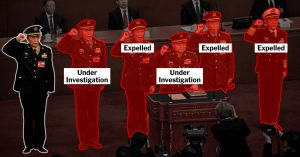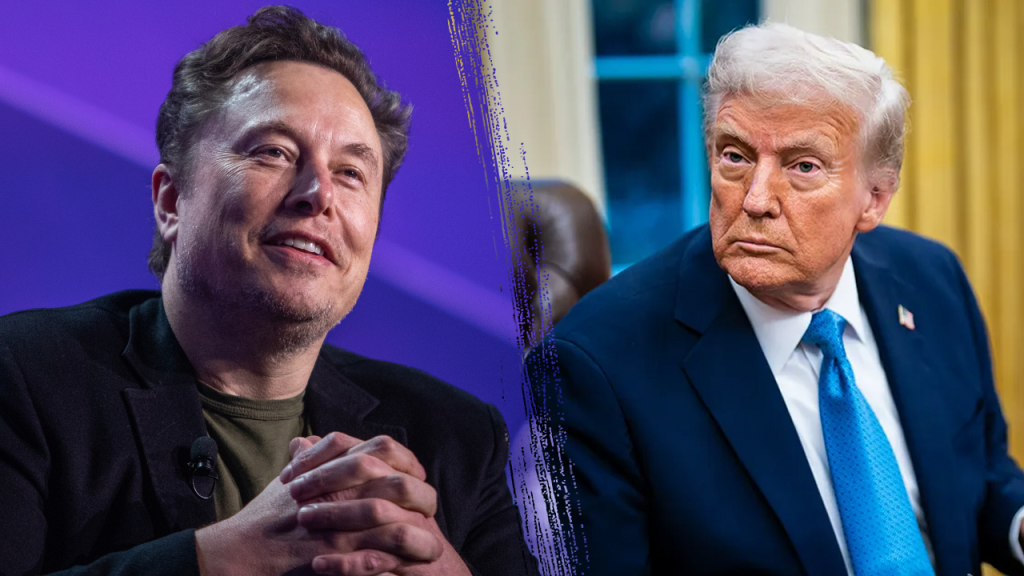The United States Agency for International Development (USAID), an independent federal agency responsible for administering civilian foreign aid, finds itself at the center of a political maelstrom, with House conservatives championing its downsizing, spearheaded by President Donald Trump and Elon Musk. This move has ignited a fierce debate regarding the agency’s effectiveness, its alignment with American interests, and the propriety of involving a private citizen in governmental affairs. Conservative lawmakers argue that USAID has become bloated, inefficient, and prone to mismanaging taxpayer dollars, while Democrats decry the move as an assault on an essential instrument of American soft power and an alarming example of unchecked executive authority.
At the heart of the conservatives’ argument is the assertion that USAID has deviated from its core mission of promoting development, alleviating poverty and disease, and fostering democracy abroad. They contend that the agency has become a conduit for funding projects that do not serve American interests, often benefiting countries perceived as hostile to the United States. This perspective is underscored by the escalating national debt and annual deficit, which conservatives view as compelling reasons to curtail foreign aid expenditures. They advocate for a more stringent approach to aid allocation, prioritizing fiscal responsibility and ensuring that funds are directed towards nations that align with American values and strategic objectives.
Representative Andy Biggs (R-Ariz.) exemplifies this stance, criticizing USAID as a “corrupt governmental organization” that funnels taxpayer money towards politically motivated projects favored by Democrats. This sentiment is echoed by other Republican lawmakers, who believe that USAID perpetuates a cycle of dependency among recipient nations, hindering their self-reliance and diverting resources that could be better used domestically. They argue that by scaling back USAID, the United States can reduce its financial burden and encourage recipient countries to become more self-sufficient.
The proposed restructuring of USAID, with some advocating for its absorption into the Department of State, further underscores the conservatives’ dissatisfaction with its current independent status. Representative Brian Mast (R-Fla.), Chairman of the House Foreign Affairs Committee, supports this move, citing USAID’s perceived failures as justification for diminishing its autonomy. This proposal aims to streamline foreign aid operations and bring them under closer congressional scrutiny, reflecting a broader push for greater oversight of government spending.
The involvement of Elon Musk, a private citizen and prominent Trump ally, in the USAID overhaul has further fueled the controversy. Conservatives see Musk’s involvement through his Department of Government Efficiency as a necessary intervention to address perceived bureaucratic inefficiencies and wasteful spending within the agency. However, Democrats vehemently oppose this intrusion, arguing that it undermines democratic norms and grants undue influence to an unelected individual. They criticize Musk’s lack of accountability and question his authority to make decisions regarding government spending.
This clash of perspectives has intensified the partisan divide, with Democrats expressing grave concerns about the potential consequences of dismantling USAID. They argue that the agency plays a crucial role in advancing American national security interests by providing humanitarian assistance, promoting global stability, and fostering goodwill abroad. They caution that scaling back USAID’s operations could jeopardize these objectives and diminish America’s standing on the world stage. Furthermore, they see the involvement of a private citizen in government affairs as a dangerous precedent, potentially undermining democratic institutions and eroding public trust.
The ongoing debate surrounding USAID reflects a broader ideological battle over the role of government, the allocation of resources, and the conduct of foreign policy. Conservatives prioritize fiscal responsibility, national interests, and a skeptical view of foreign aid, while Democrats emphasize the importance of international cooperation, humanitarian assistance, and the use of soft power to achieve foreign policy objectives. The outcome of this debate will have significant implications for the future of USAID and the broader landscape of American foreign policy.
The scale of the USAID downsizing remains uncertain, with reports indicating that fifty senior staff members have been placed on administrative leave and communication restrictions imposed. The agency’s computer systems have also been reportedly taken over by Musk’s Department of Government Efficiency. These developments suggest a significant restructuring is underway, but the full extent of the changes and their long-term impact remain to be seen. The political fallout from this controversy is likely to persist, with both sides entrenched in their respective positions and the future of foreign aid hanging in the balance.
The involvement of Elon Musk adds a layer of complexity to the situation. While his business acumen and technological expertise are undeniable, his lack of experience in government and foreign policy raises concerns about his suitability for such a role. Critics argue that his close relationship with President Trump creates a conflict of interest and raises questions about the objectivity of his involvement in USAID affairs. The lack of transparency surrounding his role and the extent of his authority further fuels concerns about potential abuses of power.
The USAID controversy also highlights the broader debate about the privatization of government functions. While proponents argue that private sector involvement can improve efficiency and reduce costs, critics worry about the potential for conflicts of interest, lack of accountability, and erosion of democratic principles. The USAID case serves as a microcosm of these larger concerns, raising fundamental questions about the appropriate balance between public and private sector involvement in government operations.
The actions taken by the Trump administration and Elon Musk have undoubtedly disrupted the status quo at USAID. Whether these changes will ultimately lead to a more effective and efficient agency or further politicize and undermine its mission remains to be seen. The ongoing debate and the resulting actions will have far-reaching consequences for the future of foreign aid and America’s role in the world. The focus now shifts to the potential long-term implications of these changes and the broader debate about the role and effectiveness of foreign aid in advancing American interests and values.















